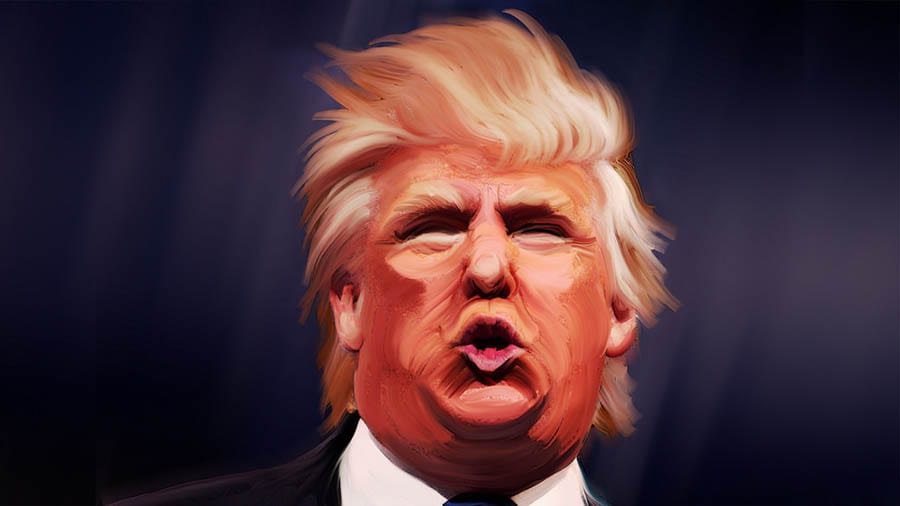
By Tom McGregor, CNTV Panview Commentator
The End of globalization?
On Jan. 29, 1991, then-United States President George Bush stood at the height of his popularity with the American people. The Cold War had ended and a spirit of optimism prevailed. Bush stood before both Houses of Congress to deliver his State of the Union and touted a new geopolitical concept called ‘New World Order.’ He said:
“What is at stake is more than one small country; it is a big idea: a new world order, where diverse nations are drawn together in common cause to achieve the universal aspirations of mankind — peace and security, freedom, and the rule of law. Such is a world worthy of our struggle and worthy of our children’s future.”
Such lofty ideals seemed inspiring. Who could say no to the “common cause” of “peace and security, freedom and the rule of law?” If nations do work together that would blaze a path of prosperity and stability for all global citizens.
End of globalization: Could it become a reality
Nevertheless, the globalist dream had transformed into a nightmare for many people all over the world. Globalist promoters claimed that supporting a ‘New World Order’ would lessen the income disparity gap between the rich and poor, however, that did not occur as the wealthy elites got richer, while the Middle and Lower Classes saw declining fortunes.
New international trade deals were expected to help small companies get richer since they would have access to more markets to export goods, but that scenario failed to materialize because extensive trade channels were overtaken by‘Big Business’ multinationals and they had driven many of their smaller competitors into bankruptcy.
The End of globalization; US Manufacturing Capacity is Shrinking
Meanwhile, the US manufacturing sector had shrunk significantly ever since the dawn of the ‘New World Order.’ Globalists favour borderless trade deals, arguing that lower tariffs would lower prices for consumer goods, even though it would mean massive job losses for American factory workers.
For the past few decades, China appeared to have been the biggest beneficiary of globalism, transforming into the world’s second-largest economy. The Chinese achieved so much success because they were hard-working, but they could also export goods at much lower prices.
China should be proud of its accomplishments, but we should also ask ourselves from the perspective of other nations, was globalism really fair? According to the Republican Party nominee for President Donald Trump, he would answer, “no.”
Trump has pledged to oppose globalist trade deals,
such as the TPP (Trans-Pacific Partnership) and TTIP (Trans-Atlantic Trade and Investment Partnership), which are under debate in the halls of Congress right now.
Trump said the TPP and TTIP would harm the US manufacturing industry, while Big Business would score as big winners. Multinationals can set up factories in poorer countries and resell those products to American consumers while enjoying sky-high profit margins.
Trump’s fight against globalism has helped him to grab the GOP nomination for the White House. When he launched his campaign last year, few expected him to succeed. Poll numbers showed he had the support of 1-2% of likely voters at that time.
End of globalization Rhetoric based on Changing US Sentiment
But then Trump started talking about building a wall on the US-Mexico border and make Mexico pay for it. He highlighted patriotic slogans, such as “America First” and “Make America great again;” and Trump had become an overnight political sensation.
He was rising in polls, Republican rivals, who endorsed globalism, were losing appeal. Trump had endeared himself to voters hearts with a populist agenda. His nomination seemed inevitable even before the caucuses and primaries got started earlier this year in January.
His critics contend that Trump is too inflammatory, emotional and lacks diplomatic skills to serve as Commander-in-Chief of the U.S. Armed Forces and leader of the most powerful nation in the world. He would disrupt the globalist agenda, but that’s exactly why his supporters love him.
Many believe the US has gotten too powerful,
Perhaps too big to fail. The Land of the Free has turned into the globalist bully, refusing to allow other nations to rise in equal status in a balance of powers.
The War Hawks of Washington, who endorse more wars and sky-high US military defence spending, are now cheerleaders for the presumptive Democrat Party nominee, Hillary Clinton. Many neo-conservatives (supporters of globalism, Big Business and the Pentagon war machine) have either endorsed Clinton or would refuse to vote for Trump in November.
The 2016 race for the White House is a campaign for the ages. American voters have a stark choice. They could vote for Hillary Clinton, a leading figure of the Washington Establishment and the globalist cause, who receive plenty of financial backing from lobbyists, Big Business, Wall Street and the elites.
Or Americans could say goodbye to globalism and hello to ‘my country first-ism.’ The trend has already started worldwide as populist candidates in the Philippines, Hungary, Poland, and Russia have been elected to power.
If Trump were elected as the next US President, he would end the ‘New World Order’ era and deservedly so, because the globalist game was rigged, inflicting so much pain and suffering on America’s Middle Class and Working Poor.
Is This The End of globalization?
Globalisation is now considered to be in crisis and at a point of receding, where provincialism and nationalism are taking hold. With the rise of economic nationalism, the looming fear of new trade wars between the USA, China and Europe, rising geopolitical tensions, the intensification of market protectionism and the shifting global economic landscape from the West to the East, many commentators have begun announcing with conviction the dead of globalisation.
For most of the past 25 years, globalisation was seen as an unstoppable and an irreversible force, as sure to advance as the sun rises in the east. In the past few decades, globalisation has narrowed the wealth gap between rich and poor countries but fed into a growing crisis of inequality within Western countries and developing countries. Full Story
Globalization uses up finite resources more quickly.
As an example, China joined the world trade organization in December 2001. In 2002, its coal use began rising rapidly (Figure 1, below).

Figure 1. China’s energy consumption by source, based on BP’s Statistical Review of World Energy data.
In fact, there is also a huge increase in world coal consumption (Figure 2, below). India’s consumption is increasing as well but from a smaller base.
Globalization transfers jobs from developed countries to less developed countries. Globalization levels the playing field, in a way that makes it hard for developed countries to compete. A country with a lower cost structure (lower wages and benefits for workers, more inexpensive coal in its energy mix, and more lenient rules on pollution) is able to out-compete a typical OECD country. In the United States, the percentage of US citizen with jobs started dropping about the time China joined the World Trade Organization in 2001.

Figure 8. US Number Employed / Population, where US Number Employed is Total Non_Farm Workers from Current Employment Statistics of the Bureau of Labor Statistics and Population is US Resident Population from the US Census. 2012 is a partial year estimate. Full Story
Other Articles of Interest:
Another reason this bull market will not buckle soon (July 22)
Americans favour Coffee over Financial Freedom (July 13)
What Economic Recovery; 62% of Americans don’t even have 1000 in savings (July 12)
Why everyone should own some Gold & Silver Bullion (June 12)
1st World Corporate America & Third World Regular America (27 May)
Negative rates will fuel the biggest Bull Market rally in History (25 May)
Millennials being squeezed out of Housing Market (20 May)
Problem is Fractional Reserve Banking-we don’t need Gold standard (15 May)
EU stands to benefit by Granting China free market status
China cuts rates to boost green energy demand

China showcases its culture to the World
Remaking Moscow lures more Chinese investment
Chinese firms extend Moscow’s rail networks
Russians show patriotism on nuclear bunker tours
Moscow hi-tech parks seek lower production costs
Despite challenges & sanctions: Russian oil & gas remain profitable
Downed Su-24 shows U.S treachery
Global Warming Is Fake: Let’s See If This is True

Chinese flocking to U.S. Real Estate and German Migrant crisis

U.S. backed Coup in Ukraine, China wins, Russia resists



